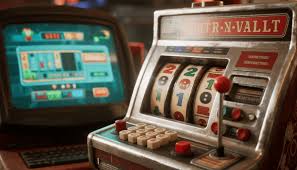When it comes to casino entertainment, few games capture the imagination quite like the slot gacor gampang menang machine. Known for its simplicity, flashing lights, and the thrill of potential big wins, the slot has become an iconic fixture in both land-based and online casinos. Unlike traditional table games such as poker or blackjack, slots require no complex strategies or deep knowledge. Instead, they rely on chance, making them accessible to beginners while still appealing to experienced players.
The Origins of the Slot Machine
The first true slot machine dates back to the late 19th century. Charles Fey, a San Francisco mechanic, is credited with creating the Liberty Bell machine in 1895. This early machine had three spinning reels and five symbols: horseshoes, diamonds, spades, hearts, and the Liberty Bell. Landing three bells in a row rewarded the top payout of 50 cents.
Despite its mechanical simplicity, Fey’s invention was revolutionary. It laid the foundation for the modern slot machine industry, with its spinning reels and automatic payouts. Over the next few decades, manufacturers began experimenting with new designs and symbols, eventually giving rise to the fruit machines, which used cherries, lemons, and bars as icons.
How Slot Machines Work
At first glance, a slot game may appear straightforward: players insert money, spin the reels, and hope for matching combinations. However, the underlying mechanics are far more complex.
Random Number Generators (RNGs)
Modern slot machines, whether physical or digital, use a Random Number Generator (RNG) to determine outcomes. This computer program generates thousands of random sequences per second, ensuring that each spin is independent of the last. This means players cannot predict or influence the result, making slots entirely games of chance.
Paylines and Symbols
A slot usually consists of multiple reels and paylines. Paylines are the patterns that determine winning combinations. Some older slots had just a single payline, but today’s video slots often feature dozens—or even hundreds—of ways to win.
Symbols vary depending on the theme of the slot, but most include standard icons, wilds (which substitute for other symbols), and scatters (which often trigger bonus features).
Return to Player (RTP) and Volatility
Every slot has an RTP percentage, which indicates how much of the total wagered money the game is expected to return to players over time. For example, a slot with a 96% RTP will theoretically pay back $96 for every $100 wagered. Volatility, on the other hand, refers to the risk level of the game. High-volatility slots may pay out large sums but less frequently, while low-volatility slots offer smaller, more consistent wins.
Types of Slot Games
The slot industry has evolved significantly, offering a wide variety of games to suit every taste.
- Classic Slots
These are inspired by traditional mechanical slot machines, often featuring three reels and simple fruit or bar symbols. They appeal to players who enjoy a nostalgic, straightforward experience. - Video Slots
The most common type found in online casinos, video slots feature five or more reels, advanced graphics, and engaging storylines. They often come with bonus rounds, free spins, and interactive features. - Progressive Slots
Progressive jackpot slots are particularly popular because they pool wagers from multiple players into a single, ever-growing jackpot. Some progressive slots have awarded life-changing sums worth millions of dollars. - 3D and Branded Slots
With advancements in technology, developers now create visually stunning 3D slots and branded slots based on movies, TV shows, or celebrities. These games combine immersive visuals with engaging gameplay. - Mobile Slots
As mobile gaming has grown, so too has the popularity of mobile slots. Players can now enjoy their favorite games on smartphones and tablets, making the experience more convenient and accessible than ever.
Why Slots Are So Popular
The slot machine’s enduring popularity is no accident. Several factors explain why players across generations continue to flock to these games:
- Simplicity: Slots don’t require special skills, strategies, or prior knowledge. Anyone can play with just a few taps.
- Entertainment Value: With vibrant graphics, exciting themes, and immersive sound effects, slots deliver a cinematic gaming experience.
- Variety: From Egyptian adventures to space-themed reels, there’s a slot for every interest.
- Potential for Big Wins: Progressive jackpots and high-volatility slots offer the thrill of massive payouts.
- Accessibility: Online casinos and mobile platforms make it easy for players to enjoy slots anytime, anywhere.
Online Slots and the Digital Era
The rise of the internet transformed the gambling industry, and slot machines were among the first games to make the leap online. Today, online casinos host thousands of slot titles, each designed with unique mechanics and themes.
Some key benefits of online slots include:
- Free Play Options: Many platforms allow players to try demo versions of slots before wagering real money.
- Bonuses and Promotions: Online casinos frequently offer welcome bonuses, free spins, and loyalty rewards specifically for slot players.
- Convenience: No need to travel to a casino—players can access their favorite slots from the comfort of their homes.
Responsible Slot Gaming
While slots provide fun and entertainment, it’s important to approach them responsibly. Since they are games of chance, chasing losses or betting more than you can afford can lead to financial problems. Responsible gambling practices include setting budgets, taking breaks, and recognizing when to stop.
Many casinos and gaming platforms now include responsible gambling tools, such as self-exclusion options, deposit limits, and time reminders, to help players maintain control.
The Future of Slot Games
The slot industry shows no signs of slowing down. Developers continue to innovate with new features, such as virtual reality (VR) slots and blockchain-based games that use cryptocurrencies for betting and payouts. Artificial intelligence (AI) is also being used to personalize slot experiences, offering players recommendations based on their preferences.
As technology advances, we can expect even more immersive gameplay, bigger jackpots, and greater integration with social gaming platforms.
Conclusion
The journey of the slot machine—from a simple mechanical device in the 19th century to a digital powerhouse in modern online casinos—demonstrates its timeless appeal. With their blend of chance, excitement, and variety, slot games have earned their place as one of the most beloved forms of gambling worldwide.
Whether you prefer classic fruit machines, high-tech video slots, or the thrill of chasing a progressive jackpot, the world of slots offers something for everyone. As long as players engage responsibly, the slot will remain a source of entertainment and excitement for years to come.

